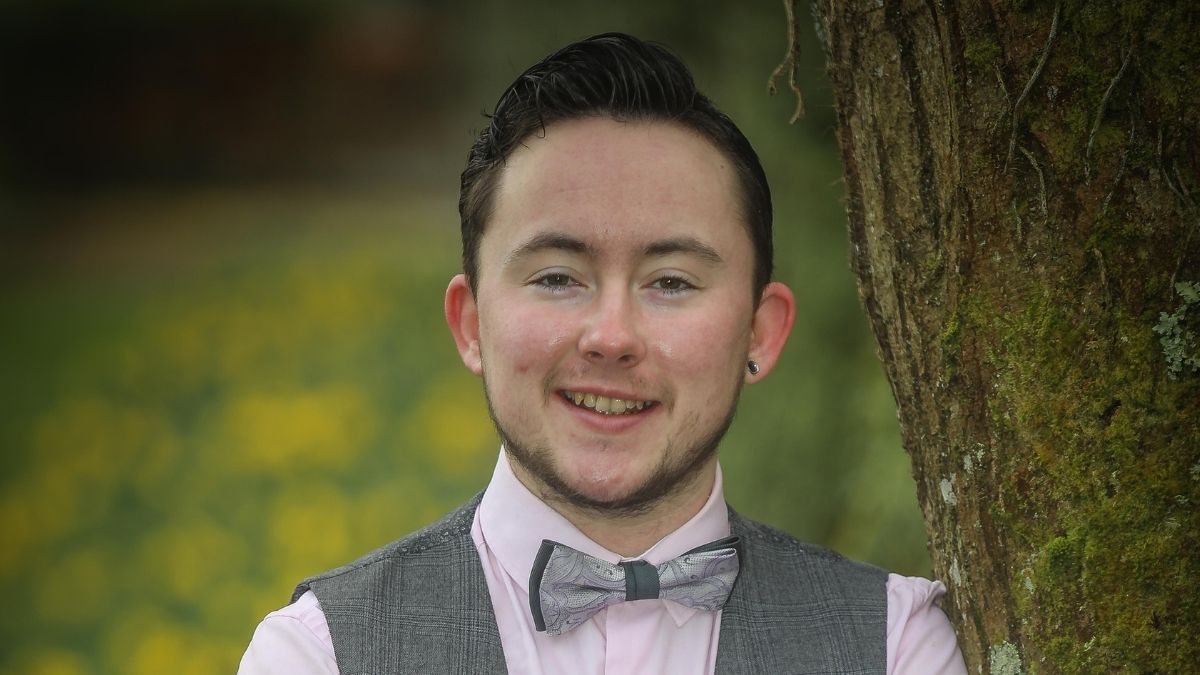
My name is Cameron Keighron (They/Them) and I am in the first year of my PhD programme in NUI Galway. My research focuses on neurodegeneration and electrophysiology; investigating potential therapeutics that target Parkinson’s related dementia.
I am representing NUI Galway and Ireland in the Next Generational Leaders Programme via the Talloires Network of Engaged Universities, a global partnership between 417 university presidents, vice-chancellors and rectors in 79 countries who have committed to strengthening the civic roles and social responsibilities of their institutions.
Through this programme I, along with 40 other youth leaders across 21 different countries, will explore innovative solutions to key societal and global issues affecting higher education today.
My time with this programme is going to focus on Innovations in Gender Equity where I will explore strategies to address inequalities in opportunity and discrimination due to gender and further highlight the role that gender plays in the policy and practices of our universities.
Gender discrimination has been an issue in higher education, not only in Ireland but around the world. This can create isolating and lonely experiences of navigating education – people like me are not represented in senior roles in higher education.
In this leadership role, I will work closely with people who will help our campus communities understand and contextualise gender inequity throughout our societies, and how this can lead to a lack of opportunity, support and self-worth.
Throughout history, the privileged have celebrated those of us who make it through oppressive systems and institutions as if we’ve beaten the odds to achieve our potential, when equitable access to education could have been created. It feels as though we celebrate minimal gender diversity in our higher education systems because it ticks a box.
This Next Generational Leaders Programme will challenge our prejudices and stereotypes in gender in society, however uncomfortable that may be, recognising that this is not only the right thing to do but it is the thing we should have done years ago.
I am hopeful that this will create a culture of empowerment in universities and among students in advocating for gender equity.
Why am I interested in Innovations in Gender Equity? From a young age I struggled with my gender identity. Living in a rural area in the West of Ireland meant that there wasn’t a lot of information available to me. I spent many years not understanding if I was “normal” or would I lead a “normal” life.
Coming out as Trans helped me understand who I was. It made me feel at home with myself, that I could breathe again for the first time. There was no more hiding.
Imagine, being a teenager surrounded by a world of gender norms and never being able to fit in. Imagine being a teenager who would do anything to be “normal”, because to be different means oppression, hurt and isolation. Imagine being a teenager who is taught to hate every fibre of their being by society around them. Now, imagine how we recreate this culture and attitude in our higher education institutions. For most Trans people we don’t have to imagine this, we live it.
Coming out, has been one of the most liberating experiences of my life, but it has also put barriers up – living in a society with the rise of the far right and the increase in harassment and threats. However, being unapologetically me allows me to feel human – and that is powerful.
I hope that by gaining insights into best practice internationally, and shaping it, the leadership programme will create a culture of inclusion for people across campuses – a culture where we listen to lived experiences of people who have faced discrimination and use this to motivate us to create change.
My journey into advocacy, activism and volunteering has taken off over the past decade. It started as a teenager writing letters for Amnesty International to being Chair of AMACH! LGBT+ and the President of the ENLIGHT Student Board, and on to being student partner in NUI Galway’s Inclusive Learning and Teaching project focusing on how we make higher education more inclusive & accessible for people from minority communities and lastly a Youth Panel Member on the D1 Now study looking to improve healthcare for Type 1 Diabetics.
Change is needed to address inequity in access to higher education, in supporting minorities on their journey in higher education and in the cultures and attitudes we create on our campuses.
Although this change may be slow, it is important to persevere. I hope I can use the leadership programme as an opportunity to network with other youth leaders who are passionate about gender equality and empower each other and the wider Talloires network to become changemakers in gender equity in higher education.
I also want to give back to the higher education community who have supported me throughout my academic career and show younger Trans people that they have a place in education and they have a place as the next set of leaders.